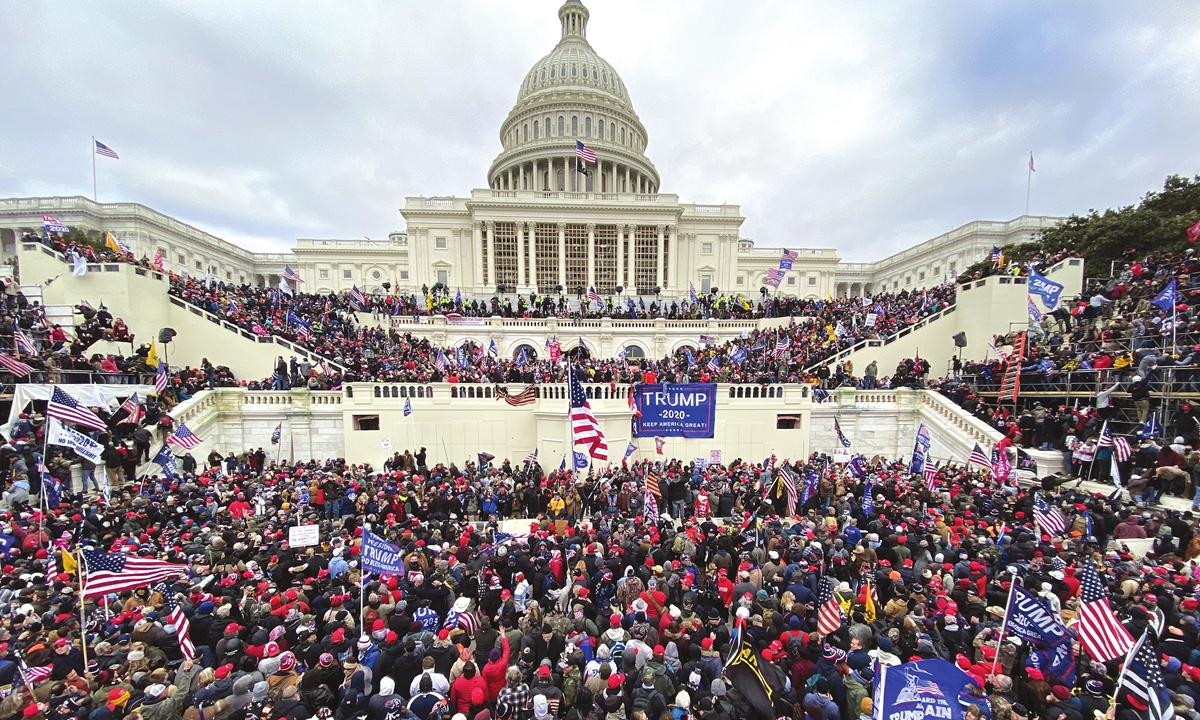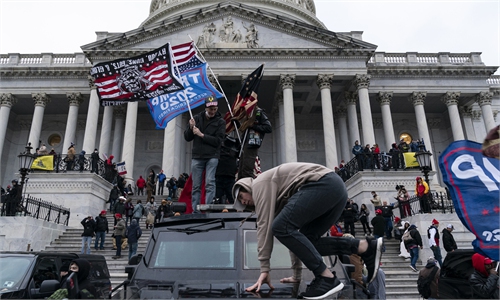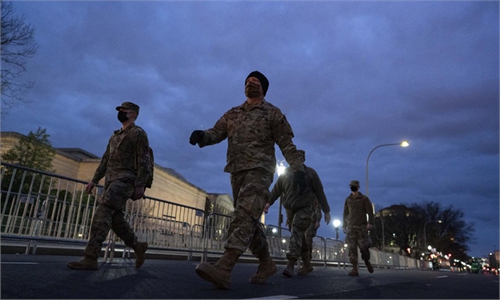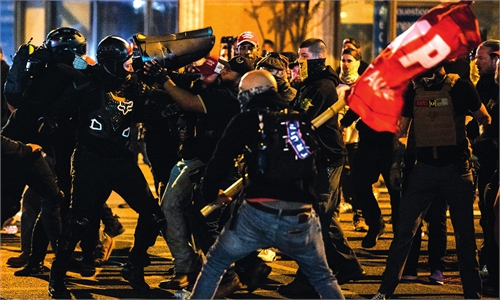Intel failures inflamed US Capitol riot
Despite FBI warning of mobs ‘ready for war,’ DC forces were ill-prepared

Former US president Donald Trump's supporters gather outside the Capitol building in Washington DC, the US, on January 6. Photo: AFP
The deadly US Capitol riot on January 6 exposed devastating security and intelligence weaknesses, with military authorities reacting too slowly to calls for National Guard backup against an overwhelming mob, security officials told Congress Tuesday.Among the most serious lapses revealed: The Federal Bureau of Investigation sent US Capitol Police (USCP) a report on the eve of the unrest warning that extremist groups were coming to Washington "ready for war," but the document did not reach USCP leadership.
And lawmakers also heard that military officers had been "reluctant" to send troops to defend Congress, even when it was clear that conditions at the Capitol had deteriorated.
In the first congressional hearing on the attack, police chiefs and the House and Senate sergeants at arms acknowledged they were blindsided by lack of intelligence and response coordination to the worst domestic insurrection since the Civil War.
In compelling testimony they painted a picture of officers badly outnumbered by armed and coordinated insurgents.
They pointed to a series of intelligence shortcomings about the threat level, including assessments of "remote" and "improbable" chances of major violence on January 6, even though extremist groups like the Proud Boys made clear they were coming to Washington that day to stir up trouble.
"No entity, including the FBI, provided any intelligence indicating that there would be a coordinated violent attack on the United States Capitol by thousands of well-equipped armed insurrectionists," a situation that left his officers woefully unprepared against a violent mob, said the US Capitol Police's then-chief Steven Sund.
Later in the four-hour joint hearing before the Senate homeland security and rules committees, however, Sund said the USCP "did get" the FBI report warning of violence, but "no leadership, myself included, over at Capitol Police was made aware of that at the time of the event."
Sund resigned his post days after the riot, which left five dead including one police officer and four other people. Two other police officers died by suicide shortly afterward.
US House sergeant-at-arms Paul Irving and Senate sergeant-at-arms Michael Stenger also resigned.
AFP



